Classics of Western Spirituality Bundle (126 vols.)
Digital Verbum Edition
Overview
With more than 120 volumes, the Classics of Western Spirituality collection presents readers with a comprehensive library of historical texts on Christian spirituality, and a representative collection of works on Jewish, Islamic, Sufi, and Native American spirituality. This library contains multiple genres of spiritual writing, including poetry, songs, essays, theological treatises, meditations, mystical biographies, and philosophical explorations. The collection incorporates the work of famous authors such as Augustine and Martin Luther, as well as lesser-known authors such as Maximus the Confessor and Moses de León.
In the Verbum editions, these valuable volumes are enhanced by amazing functionality and features. Scripture and ancient-text citations link directly to English translations and original-language texts, and important terms link to dictionaries, encyclopedias, and a wealth of other resources in your digital library. The Topic Guide lets you perform powerful searches to instantly gather relevant biblical texts and resources. Tablet and mobile apps let you take the discussion with you. With Verbum Software, the most efficient and comprehensive research tools are in one place, so you get the most out of your study. The bundle comprises three collections:
Key Features
- Presents spiritual texts covering the entire history of the Christian church
- Comprises multiple genres and both famous and lesser-known authors
- Features a representative collection of spiritual writings from Jewish, Sufi, Islamic, and Native American authors.
Individual Titles
- Athanasius: The Life of Antony and the Letter to Marcellinus translated by Robert C. Gregg
- Ephrem the Syrian: Hymns translated by Kathleen E. McVey
- Gregory of Nyssa: The Life of Moses translated by Everett Ferguson and Abraham Malherbe
- John Climacus: The Ladder of Divine Ascent translated by Colm Luibheid and Norman Russell
- Maximus Confessor: Selected Writings translated by George C. Berthold
- Origen: An Exhortation to Martyrdom, Prayer and Selected Works translated by Rowan A. Greer
- Philo of Alexandria: The Contemplative Life, The Giants, and Selections edited by David Winston
- Pseudo-Dionysius: The Complete Works translated by Colm Luibheid
- Pseudo-Macarius: The Fifty Spiritual Homilies and the Great Letter edited by George A. Maloney
- Augustine of Hippo: Selected Writings translated by Mary T. Clark
- John Cassian: Conferences translated by Colm Luibheid
- Albert and Thomas: Selected Writings edited by Simon Tugwell
- Anchoritic Spirituality: Ancrene Wisse and Associated Works translated by Anne Savage and Nicholas Watson
- Angela of Foligno: Complete Works translated by Paul Lachance
- Angelic Spirituality: Medieval Perspectives on the Ways of Angels translated by Steven L. Chase
- Anglo-Saxon Spirituality: Selected Writings translated by Robert Boenig
- Apocalyptic Spirituality: Treatises and Letters of Lactantius, Adso of Montier-en-der, Joachim of Fiore, the Spiritual Franciscans, Savonarola translated by Bernard McGinn
- Bernard of Clairvaux: Selected Works translated by Gillian Evans
- Birgitta of Sweden: Life and Selected Writings edited by Marguerite Tjader Harris
- Bonaventure: The Soul’s Journey into God, The Tree of Life, The Life of St. Francis edited by Ewert Cousins
- Carthusian Spirituality: The Writings of Hugh of Balma and Guigo de Ponte translated by Dennis D. Martin
- Catherine of Genoa: Purgation and Purgatory, the Spiritual Dialogue translated by Serge Hughes
- Catherine of Siena: The Dialogue translated by Suzanne Noffke
- Celtic Spirituality edited by Oliver Davies
- Devotio Moderna: Basic Writings translated by John H. Van Engen
- Dominican Penitent Women edited by Maiju Lehmijoki-Gardner
- Early Dominicans: Selected Writings edited by Simon Tugwell
- Elisabeth of Schönau: The Complete Works translated by Anne L. Clark
- Francis and Clare: The Complete Works translated by Regis J. Armstrong and Ignatius C. Brady
- Francisco de Osuna: The Third Spiritual Alphabet translated by Mary E. Giles
- Gertrude of Helfta: The Herald of Divine Love edited by Margaret Winkworth
- Hadewijch: The Complete Works translated by Columba Hart
- Henry Suso: The Exemplar, with Two German Sermons edited by Frank Tobin
- Hildegard of Bingen: Scivias translated by Columba Hart and Jane Bishop
- Jacopone da Todi: The Lauds translated by Elizabeth Hughes and Serge Hughes
- Jean Gerson: Early Works translated by Brian Patrick McGuire
- John Ruusbroec: The Spiritual Espousals and Other Works translated by James A. Wiseman
- Julian of Norwich: Showings translated by Edmund Colledge and James Walsh
- Late Medieval Mysticism of the Low Countries edited by Rik Van Nieuwenhove, Robert Faesen, and Helen Rolfson
- Margaret Ebner: Major Works edited by Leonard P. Hindsley
- Marguerite Porete: The Mirror of Simple Souls translated by Ellen Babinsky
- Mechthild of Magdeburg: The Flowing Light of the Godhead translated by Frank Tobin
- Meister Eckhart: The Essential Sermons, Commentaries, Treatises, and Defense translated by Edmund Colledge
- Meister Eckhart: Teacher and Preacher edited by Bernard McGinn
- Nicholas of Cusa: Selected Spiritual Writings translated by H. Lawrence Bond
- Norbert and Early Norbertine Spirituality compiled by Theodore J. Antry and Carol Neel
- Richard of St. Victor: The Twelve Patriarchs, The Mystical Ark, Book Three of the Trinity translated by Grover A. Zinn
- Richard Rolle: The English Writings edited by Rosamund S. Allen
- The Pursuit of Wisdom and Other Works, by the Author of The Cloud of Unknowing edited by James Walsh
- Walter Hilton: The Scale of Perfection translated by John P. H. Clark and Rosemary Dorward
- The Venerable Bede: On the Song of Songs and Selected Writings edited by Arthur G. Holder
- Gregory Palamas: The Triads edited by John Meyendorff
- Johannes Tauler: Sermons translated by Maria Shrady
- The Cloud of Unknowing edited by James Walsh
- Symeon the New Theologian: The Discourses translated by C. J. de Catanzaro
- Alphonsus de Liguori: Selected Writings edited by Fredrick M. Jones
- Angelus Silesius: The Cherubinic Wanderer translated by Maria Shrady
- Bérulle and the French School: Selected Writings edited by William M. Thompson
- Elisabeth Leseur: Selected Writings edited by Janet Ruffing
- Francis de Sales, Jane de Chantal: Letters of Spiritual Devotion translated by Péronne Marie Thibert
- John Baptist de La Salle: Spirituality of Christian Education edited by Carl Koch, Jeffrey Calligan, and Jeffrey Gros
- John of Avila: Audi, filia–Listen, O Daughter translated by Joan Frances Gormley
- John of the Cross: Selected Writings edited by Kieran Kavanaugh
- Luis de León: The Names of Christ translated by Manuel Durán and William Kluback
- Maria Maddalena de’ Pazzi: Selected Revelations translated by Amando Maggi
- Robert Bellarmine: Spiritual Writings edited by John P. Donnelly and Roland J. Teske
- Sor Juana Inés de la Cruz: Selected Writings translated by Pamela Kirk Rappaport
- Teresa of Avila: The Interior Castle edited by Kieran Kavanaugh
- Theatine Spirituality: Selected Writings edited by William V. Hudon
- Vincent de Paul and Louise de Marillac: Rules, Conferences, and Writings edited by Frances Ryan and John E. Rybolt
- Fénelon: Selected Writings edited by Chad Helms
- Jeanne Guyon: Selected Writings edited by Dianne Guenin-Lelie and Ronney Mourad
- Miguel de Molinos: The Spiritual Guide edited by Robert P. Baird
- Emanuel Swedenborg: The Universal Human and Soul-Body Interaction edited by George F. Dole
- Valentin Weigel: Selected Spiritual Writings translated by Charles Andrew Weeks
- Nicodemos of the Holy Mountain: A Handbook of Spiritual Counsel translated by Peter A. Chamberas
- Nil Sorsky: The Complete Writings edited by George A. Maloney
- The Pilgrim’s Tale edited by Aleksei Pentkovsky
- Cambridge Platonist Spirituality edited by Charles Taliaferro and Alison J. Teply
- Early Anabaptist Spirituality: Selected Writings edited by Daniel Liechty
- Early Protestant Spirituality edited by Scott H. Hendrix
- George Herbert: The Country Parson and the Temple edited by John N. Wall Jr.
- Jacob Boehme: The Way to Christ edited by Peter C. Erb
- Jeremy Taylor: Selected Works edited by Thomas K. Carroll
- Johann Arndt: True Christianity translated by Peter C. Erb
- John and Charles Wesley: Selected Writings and Hymns edited by Frank Whaling
- John Calvin: Writings on Pastoral Piety edited by Elsie Anne McKee
- John Comenius: The Labyrinth of the World and the Paradise of the Heart translated by Howard Louthan and Andrea Sterk
- John Donne: Selections from Divine Poems, Sermons, Devotions, and Prayers edited by John Booty
- Luther’s Spirituality edited by Philip D. W. Krey and Peter D. S. Krey
- Quaker Spirituality: Selected Writings edited by Dorothy M. Steere
- Seventeenth-Century Lutheran Meditations and Hymns edited by Eric Lund
- The Spirituality of the German Awakening edited by David Crowner and Gerald Christianson
- The Pietists: Selected Writings edited by Peter C. Erb
- The Shakers: Two Centuries of Spiritual Reflection edited by Robley E. Whitson
- The Theologia Germanica of Martin Luther by Bengt Hoffman
- William Law: A Serious Call to a Devout and Holy Life, the Spirit of Love edited by Paul Stanwood
- Wycliffite Spirituality edited by J. Patrick Hornbeck II, Stephen E. Lahey, and Fiona Somerset
- John Henry Newman: Selected Sermons edited by Ian Ker
- Abu al-Hasan al-Shushtari: Songs of Love and Devotion translated by Lourdes Maria Alvarez
- Early Islamic Mysticism: Sufi Qur’an, Mi’raj, Poetic and Theological Writings edited by Michael A. Sells
- Fakhruddin Iraqi: Divine Flashes translated by William C. Chittick and Peter L. Wilson
- Farid ad-Din Attar’s Memorial of God’s Friends: Lives and Sayings of Sufis translated by Paul Edward Losensky
- Ibn ‘Abbad of Ronda: Letters on the Sufi Path translated by John Renard
- Ibn Al’Arabi: The Bezels of Wisdom translated by R. W. J. Austin
- Ibn ‘Ata’ Illah Iskandari/Kwaja Abdullah Ansari: The Book of Wisdom/Intimate Conversations translated by Victor Danner and Wheeler M. Thackston
- Knowledge of God in Classical Sufism: Foundations of Islamic Mystical Theology translated by John Renard
- Nizam Ad-Din Awliya: Morals for the Heart translated by Bruce B. Lawrence
- Sharafuddin Maneri: The Hundred Letters translated by Paul Jackson
- Umar Ibn al-Farid: Sufi Verse, Saintly Life translated by Thomas Emil Homerin
- Rabbinic Stories translated by Jeffery L. Rubenstein
- The Classic Midrash: Tannaitic Commentaries on the Bible by Reuven Hammer
- The Talmud: Selected Writings translated by Ben Zion Bokser
- The Early Kabbalah edited by Joseph Dan
- Zohar: The Book of Enlightenment translated by Daniel Chanan Matt
- Abraham Isaac Kook: The Lights of Penitence, the Moral Principles, Lights of Holiness, Essays, Letters, and Poems translated by Ben Zion Bokser
- Abraham Miguel Cardozo: Selected Writings translated by David J. Halperin
- Elijah Benamozegh: Israel and Humanity edited by Maxwell Luria
- Hasidic Spirituality of a New Era: The Religious Writings of Hillet Zeitlin edited by Arthur Green
- Isaiah Horowitz: The Generations of Adam edited by Miles Krassen
- Jewish Mystical Autobiographies: The Book of Visions and the Book of Secrets translated by Morris M. Faierstein
- Menahem Nahum of Chemobyl: Upright Practices, the Light of the Eyes translated by Arthur Green
- Nahman of Bratslav: The Tales translated by Arnold Band
- Safed Spirituality: Rules of Mystical Piety, The Beginning of Wisdom translated by Lawrence Fine
- Native Meso-American Spirituality: Ancient Myths, Discourses, Stories, Doctrines, Hymns, Poems from the Aztec, Yucatec, Quiche-Maya and Other Sacred Traditions edited by Miguel Leon-Portilla
- Native North American Spirtuality of the Eastern Woodlands: Sacred Myths, Dreams, Visions, Speeches, Healing Formulas, Rituals and Ceremonials edited by Elizabeth Tooker
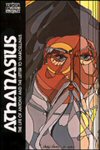
Athanasius (c. 295–373), bishop of Alexandria, spiritual master, and theologian, was a major figure of fourth-century Christendom. The Life of Antony is one of the foremost classics of asceticism. The Letter to Marcellinus is an introduction to the spiritual sense of the Psalms.
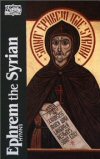
This volume contains a translation of a collection of Hymns of Christ, composed by Ephrem the Syrian (c. 306–373), the most famous and prolific writer of the Syriac Fathers.
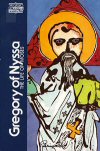
The Life of Moses has special significance because it reflects Gregory’s “spiritual sense” of the Scriptures. Gregory frames an immensely significant synthesis of the earlier Hellenistic and Jewish interpretive tradition in this work. He describes the spiritual ascent as taking place in three stages, symbolized by the Lord's revelation of himself to Moses, first in light, then in the cloud and, finally, in the dark.
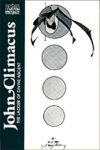
The Ladder of Divine Ascent was the most widely used handbook of the ascetic life in the ancient Greek Church. Popular among both laity and monastics, it was translated into Latin, Syriac, Arabic, Armenian, Old Slavonic, and other languages. Written while the author was abbot of the monastery of Catherine on Mount Sinai, it portrays the ascetical life as a ladder which each aspirant must ascend, each step being a virtue to be acquired, or a vice to be surrendered. Its thirty steps reflect the hidden life of Christ himself. Pierre Pourrat in his History of Christian Spirituality calls John Climacus the “most important ascetical theologian of the East.”
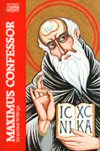
This volume includes a translation of four spiritual treatises of Maximus the Confessor (c. 580–662), plus an account of his trial. Included are The Four Hundred Chapters of Love, Commentary on the Lord’s Prayer, Chapters on Knowledge, The Church’s Mystagogy, and Trial of Maximus.
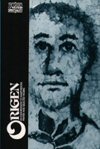
This volume consists of the important and influential writings of Origen (c. 185–254), a Christian mystic and early Church Father. Origen was born in Alexandria and lived through the turbulent years during the collapse of the Roman Empire. Selections include An Exhortation to Martyrdom, Prayer, First Principles: Book IV, Prologue to the Commentary on the Song of Songs, and Homily XXVII on Numbers. This volume also includes a preface by Hans Urs von Balthasar.
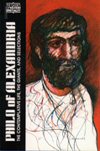
Available for the first time in one volume is the basic vision of Philo (c. 20 BC–AD 50), the greatest Jewish mystic, philosopher, and theologian of the Greco-Roman period. This anthology allows Philo to speak in his own words, and opens the door to further explore his writings. This volume includes Philo's The Contemplative Life, The Giants, and selections from the other treatises are presented by theme.
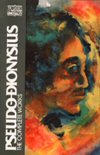
The real identity of the person who chose to write under the pseudonym “Dionysius the Areopagite” is unknown. Even the exact dates of the writings have never been determined. The texts themselves, though relatively short, are at points seemingly impenetrable and have mystified readers for centuries. Yet the influence of this shadowy figure on other mystical writers from the early middle ages on is readily discernible. The author’s formulation of negative theology stresses the impotence of human attempts to penetrate the “cloud of unknowing,” and is a perennial favorite of spiritually minded believers. Brief essays from top scholars exploring the main themes of Pseudo-Dionysius’ work accompany the primary texts, and include contributions by René Roques, Jaroslav Pelikan, Jean Leclercq, and Karlfried Froehlich.
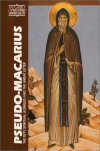
The writings of Pseudo-Macarius, a Syrian monk of the fourth century, bring to Western Christianity a holistic “heart” spirituality that offers a necessary complement to the “head” spirituality of the West. The Fifty Homilies, in the form of a practical, monastic pedagogy, reveal the typical traits of Eastern Orthodox asceticism, with particular emphasis on the spiritual combat, the action of the Holy Spirit, and the importance of interior prayer. The Great Letter discusses the purging of the passions to bring the Christian into a state of tranquility and integration, and addresses the monastic community with instructions regarding organization, humility, and prayer.
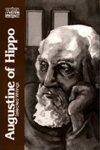
This collection of Augustine’s writings includes excerpts from his Confessions, On the Trinity, The City of God, and Homilies on the Psalms, along with the complete texts of the Rule of St. Augustine, On Seeing God, and On the Presence of God.
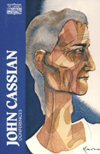
John Cassian’s Conferences is a study of the fourth and fifth century Egyptian ideal of the monk. At the turn of the sixth century the Roman rule that formed the bedrock of civil order was in decline. During the chaos of those years, there arose in the deserts of Egypt and Syria monastic movements that offered men and women a radical Christian alternative to dominant Roman society.
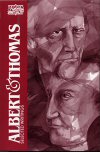
This volume contains writings by two thirteenth-century Dominicans, both doctors of the church. The two writers are St. Albert the Great (1200–1280), patron saint of natural scientists, and the “common doctor,” St. Thomas Aquinas. Both are famous for their contributions to philosophy and theology, but they are also both important in the history of spirituality.
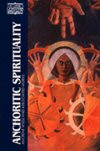
In the first quarter of the thirteenth century a number of works were written for anchoresses, women who lived as religious recluses in cells adjoining churches. The most influential is Ancrene Wisse (A Guide for Anchoresses), which discusses in great detail the daily life of the anchoress, both outer and inner. This work gives a detailed sense of a powerful and multifaceted spirituality different from that of other mystics.
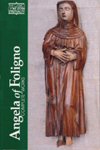
Angela of Foligno (c. 1248–1309) is one of the most outstanding representatives of the Franciscan and Christian mystical tradition. Her book, published here in English for the first time, describes her passionate love affair with the “suffering God-man,” and her teachings in the form of letters and exhortations to her spiritual progeny.
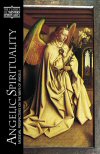
This volume explores the extensive landscape of angels in medieval Christian devotion and retrieves a very rich and unique Christian spiritual tradition.
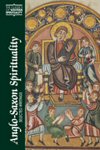
Anglo-Saxon Spirituality presents a wide-ranging selection of Anglo-Saxon writings both in poetry and prose. There are sermons extolling the heroism of saints, homilies explaining church festivals and customs, poetical paraphrases of excerpts from the Bible, visions of Judgment Day, allegories, hagiographies and didactic pieces, as well as the celebrated Dream of the Rood and Cædmon’s Hymn, the earliest known English poems.
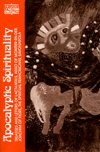
Apocalyptic Spirituality: Treatises and Letters of Lactantius, Adso of Montier-en-der, Joachim of Fiore, the Spiritual Franciscans, Savonarola
- Translator: Bernard McGinn
- Series: The Classics of Western Spirituality
- Publisher: Paulist Press
- Publication Date: 1979
- Pages: 352
Apocalyptic Spirituality makes available major texts of Christian apocalyptic literature from the fourth to the sixteenth centuries. The apocalyptic tradition is that of traditional philosophy based on Revelation and concerned with the end of the world.
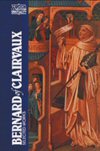
Featuring a new translation by G. R. Evans, Bernard of Clairvaux’s writings have played a major role in shaping the Western monastic tradition and influencing the development of Roman Catholic mystical theology. Together with an introduction by the master of Bernard studies, Jean Leclercq, they comprise a volume that occupies a place of special importance in the chronicle of the history of the Western spiritual adventure.
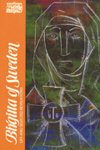
This volume contains four key documents of Birgittine literature: the Life of Blessed Birgitta, the complete fifth and seventh books of her Revelations, and her Four Prayers. Of the present volume, Birger Bergh, prominent Birgittine textual critic, writes: “This translation, done by a translator with a sensitivity of style and with genuine understanding of the Birgittine world, gives a perfect picture of the Latin original and its fluent diction.”
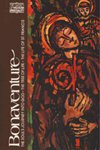
Named “The Prince of Mystics” by Leo XIII, Bonaventure (1217–1274), friar and professor at the University of Paris, was considered a great spiritual master in his own lifetime. These great works show the core of his vision.
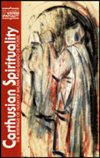
Translated here for the first time in their entirety in English are the extant writings of two little known thirteenth-century Carthusians who had great influence on Christian spirituality.
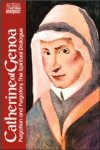
Catherine of Genoa (1447–1510), a married lay woman, was a mystic and a humanitarian, and a constant contemplative who cared for the sick and destitute. Purgation and Purgatory is a collection of sayings on spiritual purification in this life and the next. The Spiritual Dialogue gives us a readable and coherent inner history of Catherine.
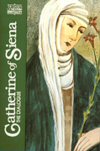
Catherine of Siena (1347–1380), mystic and doctor of the Roman Church, wrote The Dialogue, her crowning spiritual work, for “the instruction and encouragement of all those whose spiritual welfare was her concern.”
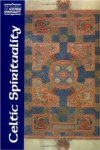
This volume offers translations of numerous texts from the Celtic tradition from the sixth through the thirteenth centuries, in a cross-section of genres and forms, including saints’ lives, monastic texts, poetry, devotional texts, liturgical texts, apocryphal writings, exegetical texts, and theological treatises.
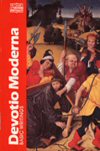
This volume consists of basic texts that reveal the spirituality of the Modern Devout, especially during the early years of the movement from 1380 to 1430. The “Modern Devotion” movement, which was originated by a Dutchman, Master Geerte Grote, is the classic expression of later medieval religious life.
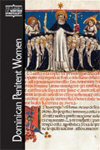
This volume examines the way of life of Dominican laywomen in Italy. It includes religious rules, hagiographical texts, and women’s own writings spanning the thirteenth to sixteenth centuries.
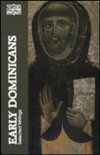
The spirituality of St. Dominic and his early followers was a force in thirteenth-century Europe. This volume contains a selection of works that represent the simplicity, ruggedness and clarity of the Dominicans’ biblically based, Christ-centered spirituality.
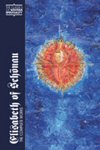
This volume contains the complete works of Elisabeth of Schönau (1129–1165), a Benedictine nun and visionary whose prophetic message brought consolation to the people of her day and a call for firmness of faith and the moral life.
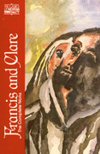
Francis (c. 1182–1226) and Clare (c. 1193–1254) together shaped the spirituality of early thirteenth-century Europe. This volume contains their complete writings, brought together in one volume in English for the first time.
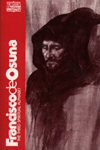
Francisco de Osuna (c. 1492–c. 1540), Spanish Franciscan and mystic, wrote a series of maxims as a practical guide for recollection. These were arranged into a series of “spiritual alphabets,” this being the third.
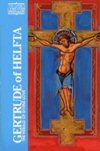
This volume contains revelations given by God to Gertrude of Helfta, a German Benedictine nun, in the thirteenth century concerning his great love for sinful man and the way in which man should respond to that love.
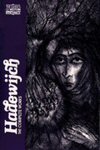
Hadewijch, a Flemish Beguine of the thirteenth century, is undoubtedly the most important exponent of love mysticism and one of the loftiest figures in the Western mystical tradition.
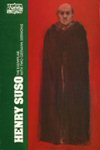
This volume presents a masterpiece of medieval literature and spirituality from the fourteenth-century German Dominican mystic Henry Suso (1300–1366).
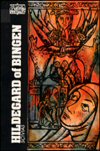
This work contains the 26 visions of Hildegard of Bingen (1098–1179), who was the first of the great German mystics, as well as a poet and a prophet, a physician, and a political moralist.
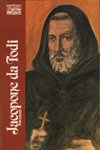
Jacopone da Todi (c. 1230–1306) was a Franciscan and a poet. His Lauds have long had an established place in the history of Italian poetry.

This volume contains the seminal writings of Jean Gerson (1363–1429), chancellor of the University of Paris, academic, humanist, Christian teacher and reformer, and one of the greatest theologians and mystical writers of the Middle Ages.
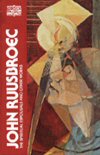
This volume consists of four of the major treatises of John Ruusbroec (1293–1381), fourteenth-century Flemish mystic, in contemporary English translation.
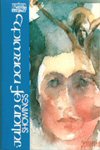
This volume contains witty and startling perceptions of the “feminine” nature of God by one of the greatest of all English mystics. Julian of Norwich (1342–c.1423) was an anchoress who lived in solitude in Norwich, England.
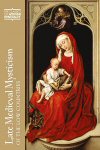
This book contains translations and introductions to some of the major representatives of the spiritual tradition of the Europe’s Low Countries from the fourteenth century onward.
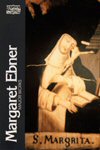
This volume contains the first-ever English translation of the major works of Margaret Ebner (1291–1351), fourteenth-century German Dominican nun and mystic. Her Revelations record the events of her spiritual journey for over 50 years of her life and reveal her gradual growth in holiness and deeper conversion to Christ.
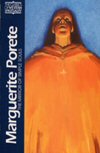
Margaret Porete (ca. 1310) was a beguine from Hainaut who was burned at the stake as a relapsed heretic. This volume contains the first modern English translation of the complete text of The Mirror, written between 1296 and 1306. It is a theological treatise that analyzes how love in humans is related to divine love and how the soul may experience a lasting union with God in this life.
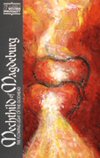
This volume contains the first English translation of The Flowing Light of the Godhead, the sole mystical visionary work of Mechthild of Magdeburg (c. 1260–c. 1282/94), a thirteenth-century German beguine. This challenging work of deep religious insight reflects Mechthild’s inner life, and God’s as well, employing a great variety of traditional medieval literary forms and genres in prose and verse.
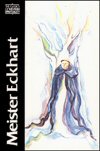
Meister Eckhart (c. 1260–1327) was a Dominican philosopher and spiritual master whose thought is among the most daring and difficult in the history of western mysticism. This volume contains his technical Latin writings and popular German sermons.
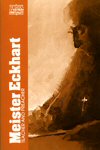
This volume consists of texts that illustrate the diversity of one of the most enigmatic and influential mystics of the Western Christian tradition. Meister Eckhart (c. 1260–1327) is represented here as teacher, with commentaries, and preacher, with sermons.
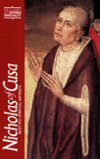
For the first time in one volume in English are the spiritual writings of Nicholas of Cusa (1401–1464), this outstanding intellectual figure whose work anticipated modern problems of ecumenicity and pluralism, empowerment and reconciliation, and tolerance and individuality.
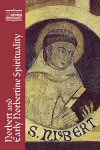
This volume contains a collection of writings, appearing for the first time in English, pertaining to the spirituality of the twelfth-century Norbertines. They are also known as the Order of Premonstratensians, the religious order founded by St. Norbert of Xanten.
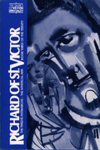
This volume contains the writings of Richard of St. Victor (d. 1173), the man who was the great link between the early Christian mystics and the mystical awakening in medieval Europe. Richard was born in Scotland and joined the Abbey of St. Victor in Paris, where he became superior and prior.
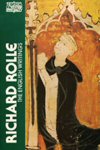
This volume includes a translation of the major prose works, several of the ascribed lyrics and a selection of the commentaries written in English by Richard Rolle (c. 1300–1349), fourteenth-century English mystical writer and hermit.
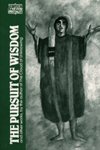
This volume includes modern English translations of The Pursuit of Wisdom and five other essays by the unknown fourteenth-century mystic who wrote The Cloud of Unknowing.
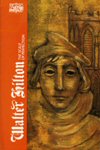
This volume contains spiritual writings of Walter Hilton (c. 1343–1396), fourteenth-century English Augustinian Canon. Hilton speaks for himself in The Scale of Perfection, and the introduction and notes give the reader orientation.
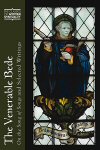
This volume contains the first English translation of Bede’s allegorical commentary On the Song of Songs, along with selections from his homilies, his Ecclesiastical History, and an introduction to his spirituality.
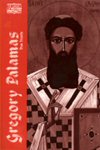
Gregory Palamas (1296–1359), monk, archbishop and theologian, was a major figure in fourteenth-century Orthodox Byzantium. This, his greatest work, presents a defense in support of the monastic groups known as the “hesychasts,” the originators of the Jesus Prayer.
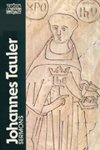
One of the most influential German mystical writers of the fourteenth century, Johannes Tauler (c. 1300–1361) spent his life as a mendicant preacher in the Order of Preachers. These selected sermons show Tauler’s emphasis on the via negativa together with his insistence on the importance of cataphatic mysticism and the merits of an active life.
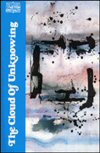
Written by an anonymous English monk during the late fourteenth century, The Cloud of Unknowing puts forth a method of contemplation that stresses the importance of the understanding to break through the cloud of unknowing that separates God and humanity.
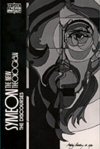
St. Symeon (942–1022), abbot, spiritual director, theologian and church reformer, was the great spiritual master of Eastern Christianity. His Discourses, the central work of his life, were preached to his monks during their Matins ritual.
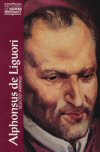
This volume contains selected writings of Alphonsus de Liguori (1696–1787); saint, bishop, founder of the Redemptorists, and doctor of the church. These writings touch on many different areas: spirituality, spiritual direction, devotion, prayer, and moral theology.
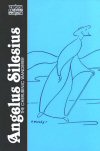
This volume contains poetic texts by one of the great German mystics of the seventeenth century, Angelus Silesius (1624–1677). These texts, written in the form of the epigram, are still used today for contemplative prayer and as part of German Christmas folklore.
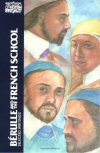
This work provides an introduction to the history and major themes of the 17th-century French School of Spirituality and its contemporary relevance. Included are works of Pierre de Bérulle (1575–1629), Madeleine de Saint-Joseph, Jean-Jacques Olier and John Eudes.
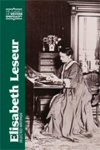
Elisabeth Leseur (1866–1914) was a French lay women whose work touched suffering, devotions, and lay and feminist spirituality. This volume contains selections from her entire corpus, including her letters, which have never before appeared in English.
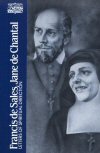
This volume consists of letters of spiritual direction written by Francis de Sales (1567–1622) and Jane de Chantal (1572–1641) that reveal the richness of Salesian spirituality. The letters show the daily attempts of laity, clergy, cloistered religious, and others to live in the authentic spirit of Jesus.
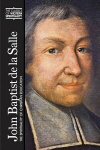
This book discusses the spirituality of the first major spiritual writer (1651–1719) to integrate the Christian vocation of education of the poor by lay men and women into a coherent spirituality. John Baptist de La Salle is considered to be the founder of modern education.
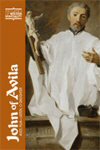
This volume contains a general introduction to the life and work of St. John of Avila (1499–1569), a major figure in the reform of the church in sixteenth century Spain, along with a translation of his major work, the Audi, Filia, a guide to the spiritual life beginning from the ascetical practices of resisting the allurements of the world and terminating in union with the crucified Lord by which the soul shares Christ’s radiant beauty.
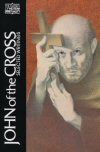
This volume contains carefully chosen texts that give a picture of the “essential” St. John of the Cross (1542–1591), a Spanish Carmelite. Included are selections from The Ascent of Mount Carmel, The Dark Night, and Spiritual Canticle.
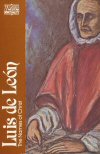
The Names of Christ, a masterpiece of the golden age of Spain, was written by Luis de León (1527–1591), an Augustinian friar, a professor and a poet. Written in the style of a pastoral dialogue, it is a meditation on the significance of Christ’s names.
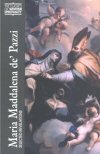
In one of the only English translations available, here are the mystical visions of Maria Maddalena de’ Pazzi (1566–1606), whose mystical works are a fascinating meditation on the nature and purpose of language.
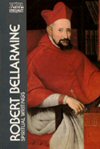
Robert Bellarmine: Spiritual Writings
- Author: Robert Bellarmine
- Editors: John P. Donnelly and Roland J. Teske
- Translators: John P. Donnelly and Roland J. Teske
- Series: The Classics of Western Spirituality
- Publisher: Paulist Press
- Publication Date: 1988
- Pages: 416
Robert Bellarmine (1542–1621), a Jesuit as well as a leading theologian of the counter-Reformation, had an enormous effect on the religious life of his age. Included in this volume are two of his most influential ascetical works: The Mind’s Ascent to God, written in the tradition of Bonaventure and John Climacus, and The Art of Dying Well.
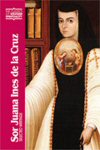
Sor Juana Ines de la Cruz (1648–1695), a Mexican Hieronimite nun, is considered to be one of the great lyric poets of the Spanish language. Here is the only translation of her religious writings in one volume, including poetry, drama, devotional works and her intellectual autobiography.
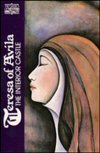
Teresa (1515–1582), a Spanish mystic, is considered to be one of the most profound spiritual teachers in the history of Christianity. The Interior Castle is Teresa’s masterpiece.
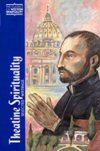
This volume presents key spiritual writings by members of the Theatine religious order, founded in Italy in 1524, along with an introduction that places the texts and the order in the context of Renaissance and counter-Reformation Italy.
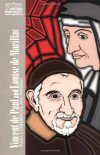
This volume contains the rules, conferences and writings of these two Vincentian founders who, through service to the poor, left an indelible mark on the church in France in the seventeenth century and beyond. Louise de Marillac (1591–1660) first came to Vincent de Paul (1581–1660) for spiritual direction and they became coworkers and friends for the rest of their lives.
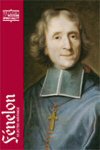
This book offers, for the first time in English, a translation of Fénelon’s (François de Salignac de la Mothe-Fénelon) (1651–1715) major spiritual writing, the Maxims of the Saints and other seminal works of fiction and spiritual direction, such as the famous “Letter to Louis XIV.”
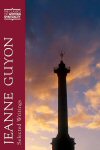
Jeanne Guyon: Selected Writings
- Author: Jeanne Guyon
- Editor: Dianne Guenin-Lelie and Ronney Mourad
- Translator: Dianne Guenin-Lelie and Ronney Mourad
- Series: The Classics of Western Spirituality
- Publisher: Paulist Press
- Publication Date: 2012
- Pages: 368
Jeanne Guyon was a seventeenth-century French mystic and Quietist, and a fascinating figure in the court of Louis XIV. This book offers new translations of her most important spiritual and autobiographical writings and introduces readers to her life and work.
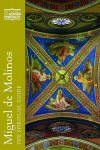
This volume features an unabridged translation into modern English of The Spiritual Guide, one of the classic texts of the Quietist movement. The Spiritual Guide was written by Miguel de Molinos (c. 1628–1696), who was one of the most important figures in the religious controversy known as Quietism.
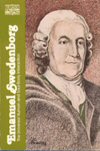
These writings from Emanuel Swedenborg (1688–1771), the eighteenth-century Swedish scientist and visionary, are among the most influential in the Western esoteric tradition.
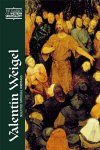
This volume contains the first English translations of key works by Valentin Weigel (1533–1588), an important German thinker and theologian. Also included is an introduction to the context and sources of his thought.
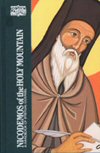
Nicodemos (1749–1809), a monk of Saint Athos dedicated to asceticism and learning, was one of the most influential Orthodox writers of the last two centuries. His Handbook, written during the Enlightenment in Europe, shares an exalted vision of human nature, but a vision that proceeds from the truths of revelation as interpreted by the Greek Fathers, not Descartes.
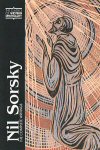
This volume contains a first-time translation from Russian into English of the complete writings of Nil Sorsky, a fifteenth-century Russian spiritual writer notable for bringing to Russia the spirituality of the early Church Fathers and mothers of the desert, the hesychasm spirituality of the heart.
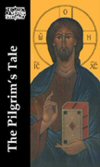
In this volume is the authentic text of one of the most famous examples of Russian spiritual literature, which deals with various aspects of the Jesus Prayer. A redaction of this text is thought to have been written no earlier than 1859.
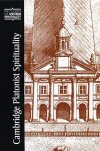
This volume is a collection of poetry, sermons, treatises, and essays by seventeenth-century English philosophers devoted to the goodness of God and the spiritual importance of reason.
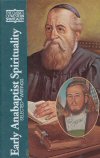
This volume consists of an anthology of early to mid-sixteenth-century writings that illuminate the distinctive character of early Anabaptist ideology. The writings focus on the themes of regeneration, the Anabaptist fellowship and the demands of discipleship.
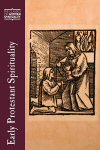
This volume is an anthology that includes writings by the Magisterial Reformers (Luther, Melanchthon, Calvin, etc.) along with lesser-known names (Frith, Capito, Vermigli, etc.) to provide a unique insight into Protestant spirituality as it developed from the earliest days of the Reformation.
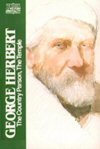
George Herbert (1593–1633) was an Anglican priest, poet and essayist truly one of the most profound spiritual masters in the English tradition. His spirituality was a synthesis of Evangelical and Catholic piety.
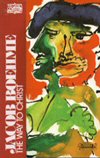
This volume contains an introduction to the thought and spirituality of Jacob Boehme (1575–1624), a German Lutheran and one of the greatest Christian mystics. The Way to Christ is a collection of nine treatises intended to serve as a meditation guide.
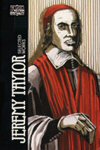
This volume contains selections from the writings of Jeremy Taylor (1613–1667), “The Shakespeare of English prose,” which illustrate the underlying theological synthesis of the Caroline Divines and the unity of language and faith that expressed their spirituality.
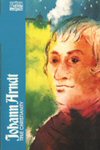
Never before translated into English, this book by the sixteenth-century Lutheran mystic Johann Arndt (1555–1621) has been the foundation for countless spiritual works both Protestant and Catholic.
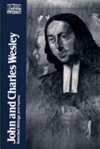
The leaders of the Methodist revival that swept eighteenth-century England, John and Charles Wesley reveal a spirituality that synthesizes a unique blend of the Church Fathers, Catholic mystics and Protestant Reformers. The major works of the Wesleys appear in this volume, including John Wesley’s Plain Account of Christian Perfection and Charles Wesley’s Hymns.
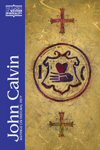
This volume presents select works of John Calvin (1509–1564), the great Reformer of Geneva, with special emphasis on his piety.
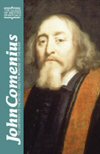
One of the most significant works in Czech literature, this is a new English translation of an allegory of the spiritual journey as experienced by a seventeenth-century pilgrim. John Comenius (1592–1670) was the pastor and spiritual leader of the Bohemian Brethren (Unitas Fratrum), a Czech Protestant group inspired by the Hussite movement of the 15th century.
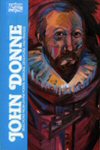
This volume is a spiritual and literary exploration of the famed Renaissance poet John Donne (1572–1631) that looks at his life and work, the transformation of his writing from secular to spiritual, and his relation to modern critics.
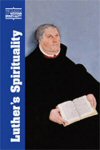
Luther’s Spirituality introduces readers to the profound depth and complex issues surrounding the great Reformer’s spirituality.
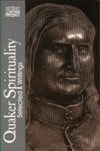
This volume contains the writings of the major voices of the Quaker movement from the 18th to the 20th centuries, including the journals of George Fox, The Journal of John Woolman, Thomas Kelly’s Testament of Devotion, and selections from Caroline Stephens and Rufus Jones.
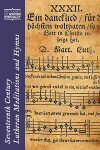
Seventeenth-Century Lutheran Meditations and Hymns
- Editor: Eric Lund
- Series: The Classics of Western Spirituality
- Publisher: Paulist Press
- Publication Date: 2011
- Pages: 384
In this volume, a specialist in seventeenth-century Germany piety and devotional writings presents new translations of the prose works and hymnody from the century following the start of the Protestant Reformation.
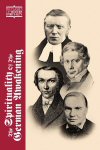
This volume is an introduction to the spiritual writings of four influential Germans from the nineteenth century who led the revival movement known as the “German Awakening.” Much of the material appears here for the first time in English.
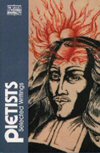
Pietism, with its origins in late sixteenth and early seventeenth-century German Lutheranism, emphasized conversion, union with Christ, and importance of Scripture. This volume is the most comprehensive collection of Pietist writings available in English.
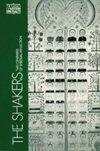
This volume studies the Shaker tradition from its origin in late eighteenth-century England to its flowering in nineteenth-century America. Here are the collected teachings of Ann Lee, Joseph Meacham, John Dunlavy and others on community, celibacy, union with Christ, faith as process, and the male/female aspects of God.
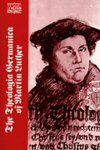
Written around 1350 by an anonymous author, this is a simple yet profound book about life in God as it translates into life in the world. This translation was based on Luther’s German edition of 1518.
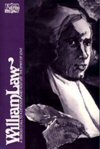
Often called the greatest of the Post-Reformation English mystics, William Law’s (1686–1761) writings, included in this volume, reflect his genius of literary style and religious devotion.
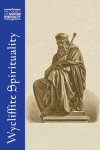
Wycliffite Spirituality
- Editors: J. Patrick Hornbeck II, Stephen E. Lahey, and Fiona Somerset
- Translators: J. Patrick Hornbeck II, Stephen E. Lahey, and Fiona Somerset
- Series: The Classics of Western Spirituality
- Publisher: Paulist Press
- Publication Date: 2013
- Pages: 432
Dating from the late medieval period in England, this volume is a collection of English translations of Wycliffe’s writings, the Wycliffite texts. The records of heresy trials discloses that, far from practicing a wholly negative Christianity, Wycliffites were as keenly interested in the spiritual life as many of their contemporaries.
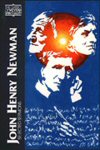
John Henry Newman (1801–1890), a convert from Anglicanism, is a seminal Roman Catholic theologian. This volume includes 34 of his Anglican sermons and four from other sources. This edition contextualizes Newman’s spirituality and is notable for its introduction by Ker, a leading Newman scholar.
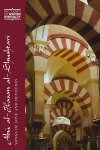
Sensuous, spiritual, and ethereal, this selection of works by the prominent Andalusian Sufi mystic and poet Abu al-Hasan al-Shushtari (1212–1269) will delight everyone, whether or not they are devotees of Islamic literature.
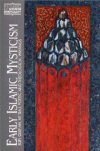
This volume makes available and accessible the writings of the crucial early period of Islamic mysticism during which Sufism developed as one of the world’s major mystical traditions. The texts are accompanied by commentary on their historical, literary and philosophical context.
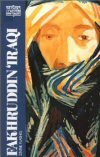
One of the foremost expositors of Sufi teachings, Fakhruddin Iraqi (1213–1289) was one of the greatest of Persian poets. His masterpiece, Divine Flashes, is a classic expression of Sufi love mysticism.
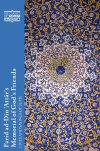
This volume presents the lives and sayings of some of the most renowned figures in the Islamic Sufi tradition, translated into a contemporary American English from the Persian of the poet Farid ad-Din Attar.
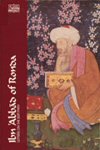
Ibn ‘Abbad of Ronda (1332–1390) wrote to his friends in Fez from the small Moroccan town of Salé. This volume contains selections of his letters, dating from 1365 to 1375, blending the lay movement of his time and the Sufi traditions of his past into a fresh spirituality.
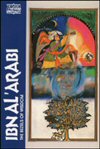
Called by Moslems “the greatest Master,” Ibn Al’ Arabi (1165–1240), a Sufi born in Spain, wrote this work that was intended to be a synthesis of his spiritual doctrine.
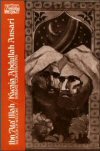
Ibn ‘Ata’ Illah Iskandari/Kwaja Abdullah Ansari: The Book of Wisdom/Intimate Conversations
- Authors: Ibn ‘Ata’ Illah Iskandari and Kwaja Abdullah Ansari
- Translators: Victor Danner and Wheeler M. Thackston
- Series: The Classics of Western Spirituality
- Publisher: Paulist Press
- Publication Date: 1978
- Pages: 256
Two early Sufi classics are contained in this volume. They embody the essence of spiritual life in the Islamic tradition. Ibn ‘Ata’ Illah (c. 1250–1309) was a Sufi saint and sage who lived in Egypt. Kwaja Abdullah Ansari (1006–1089) was one of major early writers of Persian mystical literature.
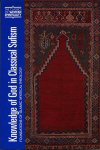
This volume consists of a mini-anthology of translated classical and medieval Arabic and Persian texts on the relationship between traditional, discursive knowledge of Islamic religious tradition and the experiential knowledge of God.
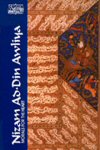
Translated from Persian, Morals for the Heart contains the conversations of Shaykh Nizam ad-din Awliya (d. 1325), a major Indian saint, as recorded by his disciple.

Sharafuddin Maneri (c. 1263–1381), born in India, was one of the most famous Islamic saints and one of the greatest Sufi masters. The Hundred Letters is a basic presentation of his teachings for spiritual advancement.
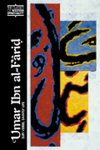
This volume contains two major works of the venerated poet Umar Ibn al-Farid (b. 576 [hijri date]/1181 AD; d. 632 [hijri date]/1235 AD), an accomplished Sufi as well as a respected poet, whose works blend the two traditions of classical Arabic poetry and Islamic mysticism.
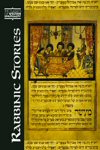
This volume contains stories from the main works of classical rabbinic literature, which were produced by Jewish sages in either Hebrew or Aramaic, between 200 and 600 AD.
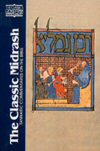
This volume includes commentary and interpretation of Scripture taken from the early rabbinic masters, the Tannaim, along with a running explanation of their theological, literary and historical importance. The editing of the Tannaitic Midrashim took place in the land of Israel in the fourth to fifth centuries AD.
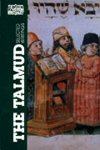
This volume sheds light on the early rabbis as the shapers of religion and uncovers for the modern reader the early Sages’ fundamental beliefs concerning God, the world and the human condition.
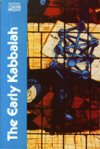
This volume contains previously unavailable texts, including The Book Bahir and the writings of the Iyyum circle that were written during the first one hundred years of this movement that was to become the most important current in Jewish mysticism. This movement began in the late twelfth century among Rabbinic Judaism in southern Europe.
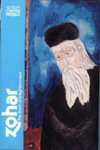
This volume contains the first translation with commentary of selections from The Zohar, the major text of the Kabbalah, the Jewish mystical tradition. This work was written in thirteenth-century Spain by Moses de León, a Spanish scholar.
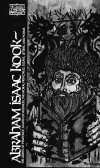
Abraham Isaac Kook: The Lights of Penitence, the Moral Principles, Lights of Holiness, Essays, Letters, and Poems
- Author: Abraham Isaac Kook
- Translator: Ben Zion Bokser
- Series: The Classics of Western Spirituality
- Publisher: Paulist Press
- Publication Date: 1978
- Pages: 448
The chief Rabbi of Palestine prior to the establishment of the state of Israel, Abraham Isaac Kook (1865–1935) represents the renewal of the Jewish mystical tradition in modern times.
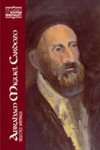
This volume contains the story, mainly told in his own words, of Abraham Miguel Cardozo (1627–1706), a seventeenth-century Jew raised as a Catholic, who combined his rabbinic learning, his Catholic training and a budding awareness of Eastern religions into a remarkable theory of comparative religion.
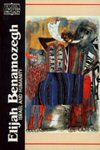
This volume consists of the first English translation of Israel and Humanity, the work that constitutes a synthesis of the religious thought of Elijah Benamozegh (1823–1900), a nineteenth-century Italian rabbi, theologian, philosopher, and kabbalist.
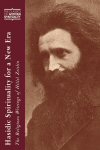
Hasidic Spirituality of a New Era: The Religious Writings of Hillet Zeitlin
- Author: Hillet Zeitlin
- Editor: Arthur Green
- Translator: Arthur Green
- Series: The Classics of Western Spirituality
- Publisher: Paulist Press
- Publication Date: 2012
- Pages: 256
A preeminent scholar of Jewish thought and spirituality presents the first English translation of selected writings of the Hasidic martyr of the Warsaw Ghetto, Hillel Zeitlin (1871–1942).
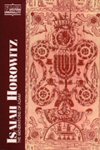
This volume consists of the first English translation of a seventeenth-century classic of Jewish literature that deals with many of the most important issues addressed by Kabbalists since the late twelfth century. Isaiah Horowitz (c. 1570–1626) served as rabbi of several of the most important European Jewish communities before becoming Chief Ashkenazic Rabbi of Jerusalem in 1621.
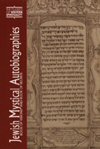
This volume consists of the first English translations of the autobiographical works of two important and influential Jewish mystics. In The Book of Visions, Rabbi Hayyim Vital (1542–1620), foremost disciple of R. Isaac Luria, describes his mystical experiences in great detail. In The Book of Secrets, Rabbi Yizhak Isaac Safrin of Komarno (1806–1874) recounts incidents in his life and visionary experiences.
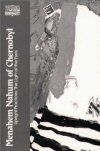
Menahem Nahum of Chernobyl (1730–1797) was rabbi of Chernobyl, near Kiev, in Ukraine. He was part of the Hasidic movement that played a key role in the history of eastern European Jewry. Upright Practices is a devotional manual of personal practices. The Light of the Eyes is a collection of homilies based on the Book of Genesis.
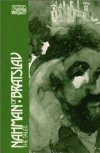
The fascinating sacred tales of Rabbi Nahman (1772–1810) are presented to the world in the most authentic translations ever accomplished.
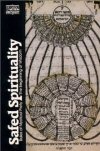
This volume portrays aspects of the rich literature that developed in Safed, a Galilean city and one of the great centers of Jewish creativity, in the sixteenth century.
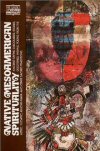
Native Meso-American Spirituality: Ancient Myths, Discourses, Stories, Doctrines, Hymns, Poems from the Aztec, Yucatec, Quiche-Maya and Other Sacred Traditions
- Editor: Miguel Leon-Portilla
- Translators: Miguel Leon-Portilla, J. O. Arthur Anderson, Charles E. Dibble, and Munro S. Edmonson
- Series: The Classics of Western Spirituality
- Publisher: Paulist Press
- Publication Date: 1980
- Pages: 322
This volume contains a collection of pre-Columbian ancient spiritual texts, the majority of which were conceived in the 950–1521 AD period. These sacred writings are attributed to the indigenous peoples of Central America, especially Mexico.
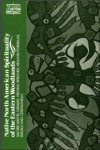
Native North American Spirtuality of the Eastern Woodlands: Sacred Myths, Dreams, Visions, Speeches, Healing Formulas, Rituals and Ceremonials
- Editor: Elizabeth Tooker
- Series: The Classics of Western Spirituality
- Publisher: Paulist Press
- Publication Date: 1979
- Pages: 302
This volume includes a basic collection of the sacred texts, religious beliefs and practices of the Indian tribes that lived along the east coast of the United States and Canada.
Product Details
- Title: Classics of Western Spirituality Collection
- Publisher: Paulist Press
- Volumes: 126
- Pages: 45,391
- Presents spiritual texts covering the entire history of the Christian church
- Comprises multiple genres and both famous and lesser-known authors
- Features a representative collection of spiritual writings from Jewish, Sufi, Islamic, and Native American authors.
- Title: Classics of Western Spirituality Collection
- Publisher: Paulist Press
- Volumes: 126
- Pages: 45,391